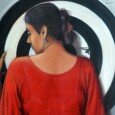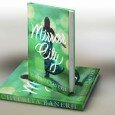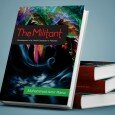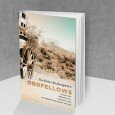By Anum Yousaf –
Cyber-subculture, political oppression and social faultlines, all put together in a pacey narrative
Sometimes one is in the mood for the literary equivalent of a palate cleanser. Sick of what tries to be high-minded literature but is pretentious drivel, a fun and refreshing read which ticks all the checkboxes of good story-telling is in order. G Willow Wilson’s Alif the Unseen is just that. And a bit more.
Set in an unnamed Gulf emirate, the novel is about Alif – a hacker extraordinaire – and his exploits in the real and the virtual world. He is somebody who offers his services to anyone who can afford them (from pornographers in Saudi Arabia to activists in Palestine and Pakistan). The protagonist is of mixed Arab-Indian descent which is a hurdle in him attaining the love of his life, Intisar – an aristocratic Arab girl. His hacktivist shenanigans lead him to run afoul of the typically repressive state regime (and the plot thickens as one finds out that the head of state security is his flame’s fiancé). He, thus, hurtles headfirst into a bizarre adventure with his neighbour and childhood friend Dina – his full-veiled accomplice in this series of events (I specifically mention the veil because the author herself chooses to preface this fact about the character and present it in a certain way). This heady mix that includes cyber-subculture, political oppression and social faultlines makes for a pacey narrative that grips the reader.
Oh, and did I mention there are djinns? And effrits? And hidden cities? And a supranatural book called Alf Yeom ¬“an inverse of the Thousand and One Nights” – that contains ancient wisdom of the djinns but which also might have the key to creating a supercomputer?
That there is a fantastical element to this book shouldn’t be a plus in-and-of-itself. But the plus is that the supernatural element doesn’t seem superimposed on the book. The author seamlessly blends the real with the magical; this makes for a textured story which seems uncomplicated because of the deft skill of the author but it actually encompasses all kinds of disparate elements. How much more disparate can the cyberpunk and the theological be? But they co-exist organically in the novel. All the diverse ingredients come together to form an interesting novel which in which the characters explore the personal and the political, the individual and the social, the mundane and the fantastical, the sacred and the profane.
Wilson’s writing is infused with a certain charm – perfect for telling a story that involves the mystical. She doesn’t approach the subject matter with Orientalist fascination but rather the aforementioned charm in her writing comes from the writing itself. It is unaffected and makes for very easy reading.
Moreover, her writing never labours under the imperatives of ‘authenticity’. An American convert to Islam who is now living in Cairo, she could easily have fallen into this trap. But even though she doesn’t consciously try to canvass socio-political life in an Arab society, she does seem to offer a personal comment on certain social issues – both in the public sphere (censorship, applications of Islamic law) and the private sphere (dealing with one’s religiosity as the private and the public collide, veiling etc). The reader’s mileage will vary on whether this takes away from the book too much.
As is obvious from the title, the “unseen” is a perennial motif running throughout the book. Not only is the book an ode to the “wonder and awe” long gone from a desensitized world but Wilson also takes on the modern predilection to disregard and dismiss the unseen and the ideal in favour of the seen and the material. There are different kinds of ‘unseens’ in the novel. There is the unseen-ness that a virtual sobriquet and digital avatar affords one. There is the unseen-ness of the munaqabaDina, who is unseen because of her veil but isn’t unnoticed. And then there is the mystical unseen which doesn’t mean it is any less real because it’s mode of rationality doesn’t quite fit the bill issued by a world hung over on its scientism and refusing to believe in anything transcendent. This mystical unseen doesn’t just refer to fantastical creatures but matters of faith and belief which a modern sensibility is loath to consider even a form of rationality.
Another motif that runs through the book is the importance of storytelling. A storybook viz the Alf Yeom is a central driving force in the book – it is the Artefact of Concentrated Awesomeness (to borrow from tvtropes). Characters extol tales and stories as carriers of wisdom and speak of their transformative powers. As a character says in a charmingly old-world dialogue to Alif, “I will tell you a story, but it comes with a warning; when you hear it, you will become someone else.” Even the landscape of the unnamed City is a storyteller in its own right. Thus, it seemed fitting that a story about stories should be well-told.
The book isn’t pitch-perfect but it is charismatic. It also doesn’t mind indulging in the occasional silliness even as it traces more serious subjects. It’s like an Aladdin for modern times (the Middle Eastern folk tale, not the Disney film laced with Orientalism and racist stereotypes). All in all, an enjoyable read worth your time.
The writer is journalist based in Lahore































































































